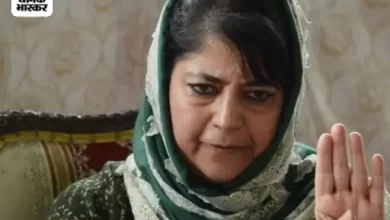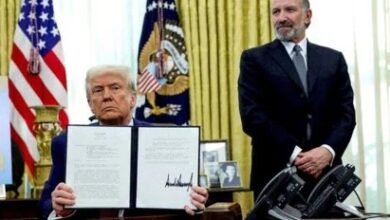
World Bank’s Chief Economist Indermit Gill has shared an optimistic outlook for India’s economy, citing fewer geopolitical risks compared to other emerging markets and a favorable position in the shifting global economic landscape.
India’s Economic Resilience
Gill emphasized India’s robust GDP growth and positive economic prospects, underscoring its potential as a stable and attractive destination for international trade and investment. According to him, while several emerging markets grapple with heightened geopolitical tensions and uncertainties, India has managed to chart a relatively stable course.
“India’s lower exposure to geopolitical risks, coupled with its growing economic stature, provides a significant advantage in the current global scenario,” Gill remarked.
Focus Areas for Economic Gains
Gill outlined specific areas where India can capitalize on its strengths:
Enhancing Trade Relations:
India should deepen economic ties with other emerging markets to diversify trade dependencies and foster resilience against global economic shocks.
Stronger South-South cooperation can unlock untapped trade opportunities.
Improving Efficiency:
Investments in infrastructure, technology, and workforce skills can enhance productivity.
Streamlined regulations and improved ease of doing business are critical for maintaining competitiveness.
Promoting Openness:
Sustaining an open trade policy will help India integrate further into global value chains.
Encouraging foreign direct investment (FDI) and partnerships can boost innovation and job creation.
Favorable Global Shifts for India
Gill noted that recent global economic changes, including realignments in supply chains and shifts in energy markets, have created a conducive environment for India.
Supply Chain Realignments: As companies diversify manufacturing bases, India has emerged as a viable alternative to traditional hubs, such as China.
Energy Transitions: India’s investments in renewable energy align with global trends, enhancing its appeal to environmentally conscious investors.
India as a Trade Hub
The World Bank economist also highlighted India’s attractiveness for international trade:
India’s diverse market and improving logistics infrastructure make it a compelling destination for global businesses.
Government initiatives like Make in India, PLI schemes, and Gati Shakti are paving the way for long-term growth in manufacturing and exports.
“India’s commitment to reforms and infrastructure development is paying off, positioning it as a key player in the global trade network,” Gill added.
Challenges to Address
While optimistic, Gill acknowledged that India must address some structural issues to sustain its growth momentum:
Income Inequality: Bridging the urban-rural divide and ensuring inclusive growth remain critical.
Bureaucratic Bottlenecks: Further simplification of processes is needed to attract higher foreign investment.
Global Integration: Expanding free trade agreements and participating in multilateral economic initiatives will enhance India’s global footprint.
Conclusion
Indermit Gill’s observations underscore India’s unique position in a rapidly evolving global economy. By focusing on efficiency, openness, and stronger trade ties with emerging markets, India can not only mitigate risks but also position itself as a leader in international trade and economic growth.
With its solid fundamentals and proactive policy measures, India is poised to capitalize on opportunities arising from global economic shifts, cementing its status as a key player on the world stage.










